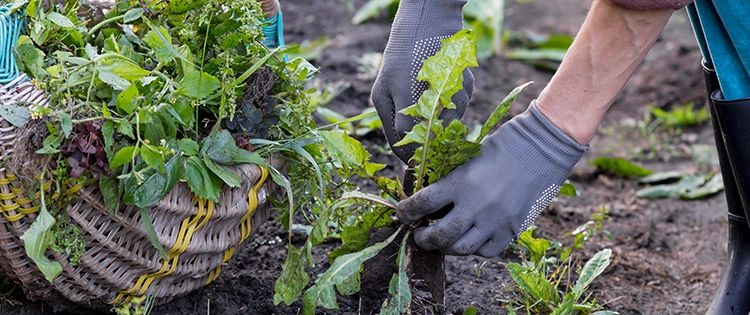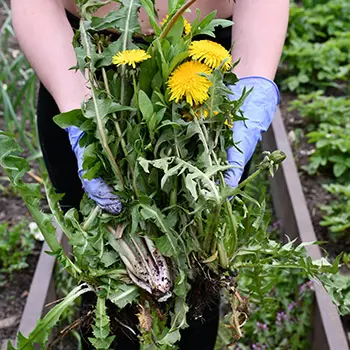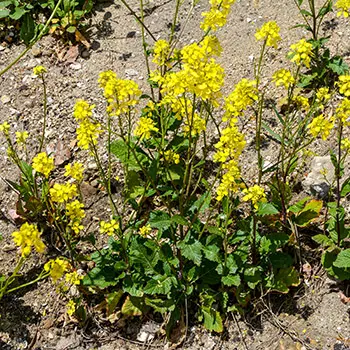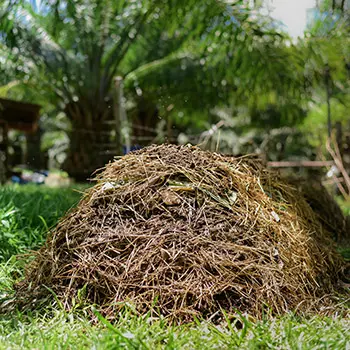Weeds are often seen as a nuisance because they can reduce crop yields, damage landscapes, and be difficult to control. You may uproot them with their bare hands or use herbicides and other chemical remedies to get rid of them once and for all.
However, many weeds have hidden beneficial properties, such as improving soil health, providing food for wildlife, or even having medicinal uses. So, instead of discarding them away, let’s explore some of the uses of weeds that can help you improve your garden and your life!
Add Weeds To Your Compost Pile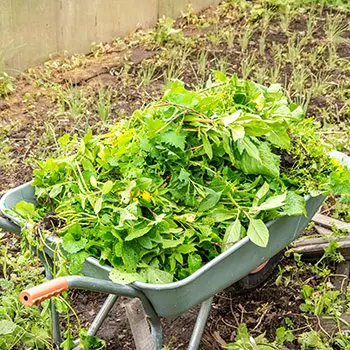
Weeds usually have deep roots which help them to extract nutrients from below the surface of the ground that most plants’ roots cannot reach. When composted, the nutrients are transferred to the final product which promotes vigorous growth of crops.
Compost made from fibrous weeds helps improve aeration which is essential for healthy root functioning. Moreover, they can also be mixed with other compost materials like kitchen scraps to create a nutrient-rich compost pile.
You can use weeds in compost by converting it into liquid fertilizer. To do that, dip the weeds into the water for a month. Filter the liquid and dilute it further to use it safely.
Related: 39 Items You Can Compost
Mulching
Weeds can be utilized as mulch to help retain soil moisture and prevent the growth of other unwanted plants. Additionally, it can be utilized as an organic matter as it decomposes into the soil over time. Lastly, weed also promotes the growth of Mycorrhizal fungi. These fungi have symbiotic relations with plant roots and provide protection.
Cut up the weeds and spread them around your garden beds. Make sure they haven’t bolted yet as it will only lead to the growth of the unwanted weed in your garden.
Soil Improvement
Weeds exhibit the growth of long roots to allow the breakdown of compacted soil, allowing water and nutrients to penetrate more easily. Some weeds, like clover and dandelions, can also fix nitrogen in the soil, naturally boosting its nutrient levels.
By allowing some weeds to thrive or composting them, you can improve your soil health without the use of any synthetic chemical fertilizers which are harmful to the environment and your health.
Simply chop the weeds and place them over the soil surface as mulch. This will add organic matter, enhance soil structure, and enrich nutrient levels.
Herbal Medicine
Many common weeds have medicinal properties and have been used by apothecaries for centuries. For example,
- Dandelions
- Thistle
- Plantain
- Stinging nettle
- Chickweed
Dandelions are rich in vitamins and minerals and can be used to support liver health and digestion. Further, plantain leaves have anti-inflammatory properties and can be applied to wounds or insect bites to speed healing.
In order to utilize the healing properties of these plants, parts of the plant are either crushed to extract the juices or formed into a paste and applied on wounds.
Natural Pest Control
Many weeds attract a variety of beneficial insects, such as ladybugs and predatory wasps, which prey on harmful pests. For example, wild mustard and Queen Anne’s lace can capture these beneficial insects, significantly reducing the need for chemical pesticides.
Other weeds, like marigolds and wormwood, have strong aromas that repel pests like aphids, nematodes, and beetles.
Use weeds as trap crops and let them grow near your main crop. Pests will prefer weeds over crops and will be easier to manage and remove. Likewise, you can turn horsetail and stinging nettle into spray and use them to deter insects.
Related: 9 Best Plants That Naturally Repel Pests from Your Homestead
Natural Dyes
Many common weeds can be used to create vibrant, eco-friendly dyes. Natural dyes are a sustainable and creative way to add color to your projects by using plants that are often considered weeds.
Here are a few examples of weeds that can be used to extract natural dyes:
- Dandelion
- Wild Hibiscus
- Sumac
- Goldenrod
- Red clover
To extract the dye, collect the part of the plant that contains the highest amount of the dye which can be the seeds, roots, or vegetative parts. Dry these parts and grind them into a powder. Add the powder to the simmering water which will allow it to impart its colors.
Feed Resource For Animals
Weeds are a valuable source of animal feed, especially for livestock like goats, chickens, and rabbits. Clover, chickweed, dandelion, and nettles are some examples of common weeds that hold significant nutritional value when it comes to feeding animals.
Packed with vitamins and minerals, they support animals’ health like bone development and egg-laying ability.
Gather weeds when they are young and delicate and chop them into smaller pieces. This will make it easy for animals to consume. Moreover, you can also mix it with other feed to create a balanced, nutritious feed for animals.
Turn Weeds Into Herbal Tea
Herbal tea can be brewed with leaves, flowers, or roots of various plants. Traditionally, common weeds that have medicinal properties are used to make tea. Stinging nettle when added to tea relieves allergies and joint pain.
Dandelion tea is known for its ability to support liver detoxification and digestion. Moreover, it has also been reported to help with common complications related to menstruation, including hormonal imbalance.
To make weed herbal tea, simply harvest the fresh or dried parts of the plant, and steep them in hot water for several minutes.
By learning to utilize weeds effectively, you can enhance your garden’s productivity, support your animals, and even improve your health—all while working in harmony with nature. Instead of throwing away your weeds, embrace their potential and make them a vital part of your sustainable lifestyle.
Weeds You Should Never Pull From Your Backyard
You Can Get Arrested For Growing This Tree. Do You Have It In Your Backyard? (Video)

